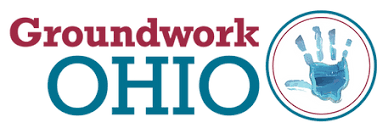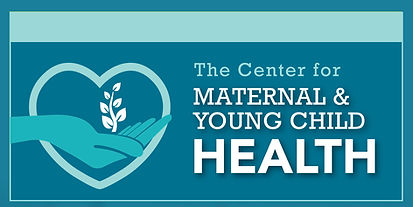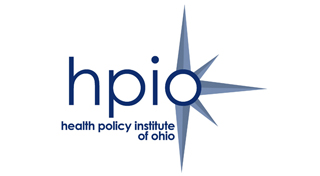
bi3’s purpose is to lead the way to a day when every person has a fair and just opportunity to achieve their best health — a day when race, ethnicity, and zip code no longer predict how long a person will live. To realize that vision, we must fuel programs, partnerships and policy.
Ohio’s Health Value Dashboard reports that Ohioans live less healthy lives and spend more on healthcare than people in most other states. Many Ohioans experience poorer health outcomes and live shorter lives because of policies, systems, and beliefs discriminating against and unfairly limiting access to resources. Black Ohioans experience much worse outcomes than White Ohioans across measures of health, healthcare, and the social, economic, and physical environment. Addressing health disparities improves health for all by increasing overall quality of care.
We need programs, partnerships, and policy transformation to achieve real change. Through our trust-based philanthropy approach, we listen to our funded partners as they identify barriers and challenges to improving health through programming. Because of the importance of government support, we are increasingly using our relationships and influence to communicate what we learn from our funded partners to the public and policymakers. For example, our OB/Gyn partners informed us that too many moms lose their Medicaid coverage 60-days after giving birth, which hinders moms’ and babies’ health.
We are supporting and partnering with nonpartisan organizations like Groundwork Ohio, Philanthropy Ohio, and Health Policy Institute of Ohio to educate stakeholders and policymakers and advocate for policy change to improve the health of Ohioans. We are now partnering with All-In Cincinnati, a community-led coalition focused on systemic change and driving health equity policy here locally.
We continue advocating to our elected and appointed officials to improve maternal and young child health, health equity and address the social determinants of health. Below are a few highlights of our recent efforts and actions YOU can take.


Jill Miller
President, Bethesda Inc.
Show Your Support: Join bi3 and Sisters of the Good Shepherd National Advocacy Center in using your voice to advocate for the Black Maternal Health Momnibus Act of 2021 (S. 346/H.R. 959)
Black women are 3 to 4 times more likely to die during childbirth than White women. This package of bills:
- Invests in community-based organizations working to improve maternal health outcomes and promote equity;
- Grows and diversifies the perinatal workforce; and
- Invests in digital tools, such as telehealth, in under-served areas.
Please join us in taking action for change; click here to call on your Members of Congress to support and pass the Black Maternal Health Momnibus Act of 2021. Once you enter your information, the template automatically loads the recipient’s information and your name. You can then choose to email or print and mail it.
bi3 partners with Groundwork Ohio to improve the health of moms and babies

Partnering with Groundwork Ohio, a nonpartisan public-policy research and advocacy organization that champions health development strategies from prenatal to age five, bi3 funded the creation and launch of Groundwork Ohio’s Center for Maternal and Young Child Health. The mission of the Center is to prepare Ohio for a better future by building and transforming systems that improve maternal and young child health, promote health equity, and prioritize prevention through policy development, research and collaboration so that all Ohio mothers and young children thrive.
Through the Center, Groundwork Ohio advocated for extending Medicaid postpartum coverage from 60-days to one full year. This is a key strategy to address the state’s high maternal mortality and morbidity and ensure access to postpartum mental healthcare. On April 1, 2022, this will become a reality and an enormous step forward for maternal health in our state.
 Why is this important? To have a healthy pregnancy and positive birth outcomes, women and their infants require access to appropriate health care services before, during, and after birth. More than half of Ohio babies are born to women covered by Medicaid. One in 3 pregnancy-related deaths happen 1-week to 1-year postpartum. Extending postpartum coverage has many benefits, including continuity of care for postpartum women, promoting healthy development for babies, and increased access to behavioral health services for moms. Learn more by reading Groundwork Ohio’s Fact Sheet.
Why is this important? To have a healthy pregnancy and positive birth outcomes, women and their infants require access to appropriate health care services before, during, and after birth. More than half of Ohio babies are born to women covered by Medicaid. One in 3 pregnancy-related deaths happen 1-week to 1-year postpartum. Extending postpartum coverage has many benefits, including continuity of care for postpartum women, promoting healthy development for babies, and increased access to behavioral health services for moms. Learn more by reading Groundwork Ohio’s Fact Sheet.
bi3 stands with partners on Substitute House Bill 327

bi3 supports and partners with the Health Policy Institute of Ohio (HPIO), whose mission is to advance evidence-informed policies that improve health and achieve health equity, and Philanthropy Ohio, a statewide nonprofit association. HPIO does not take positions on legislation but analyzes data and evidence to inform policymaking processes and Philanthropy Ohio advocates for the nonprofit community.
 Ohio lawmakers are currently considering Substitute House Bill 327, which would “prohibit teaching, advocating or promoting divisive concepts.” HPIO recently shared a statement to inform the deliberations of the Ohio House of Representatives highlighting data about health disparities, analysis on how racism impacts health, and evidence on what works to make sure that Ohioans can reach their full health potential. Philanthropy Ohio provided testimony in opposition to House Bill 327.
Ohio lawmakers are currently considering Substitute House Bill 327, which would “prohibit teaching, advocating or promoting divisive concepts.” HPIO recently shared a statement to inform the deliberations of the Ohio House of Representatives highlighting data about health disparities, analysis on how racism impacts health, and evidence on what works to make sure that Ohioans can reach their full health potential. Philanthropy Ohio provided testimony in opposition to House Bill 327.
bi3 believes that we must acknowledge the negative impact of structural racism and discrimination on health to achieve health equity.
- bi3 is presenting sponsor of Racial Equity Matters, an education series about the root causes of racism, because learning about structural racism and engaging in a healthy dialog is a critical first step to advancing equity.
- bi3 is also accelerating diversity, equity, and inclusion efforts at TriHealth, including training team members on cultural competency and implicit bias. Evidence shows delivering culturally competent healthcare leads to better health outcomes.
Substitute House Bill 327 — aimed at public primary and secondary education, public colleges and universities, state agencies and political subdivisions — would limit education, training, and discussion about racism and implicit bias, which could negatively impact the health of Ohioans.
Please take the time to learn more and share your opinion with Ohio State and Local Government Committee members.
bi3 partners with All-In Cincinnati to advance health equity
 bi3 most recently awarded a $525,000 grant to All-In Cincinnati to support the coalition’s core operations and the addition of a Health Equity Policy Director to increase local health advocacy efforts. All-In Cincinnati is a community-led coalition working to dismantle racial inequities in health, housing, education, economic mobility, and justice by focusing on Black women in Hamilton County.
bi3 most recently awarded a $525,000 grant to All-In Cincinnati to support the coalition’s core operations and the addition of a Health Equity Policy Director to increase local health advocacy efforts. All-In Cincinnati is a community-led coalition working to dismantle racial inequities in health, housing, education, economic mobility, and justice by focusing on Black women in Hamilton County.
The Health Equity Policy Director, one of the few in the region, will create and implement an advocacy agenda and strategies; create collaborative partnerships with local policymakers and other advocacy organizations; educate policymakers about All-In’s priorities; and train and mobilize the coalition members to advance its public health policy efforts. All-In Cincinnati is also funded by the United Way, Greater Cincinnati Foundation, Haile Foundation and Interact for Health.



